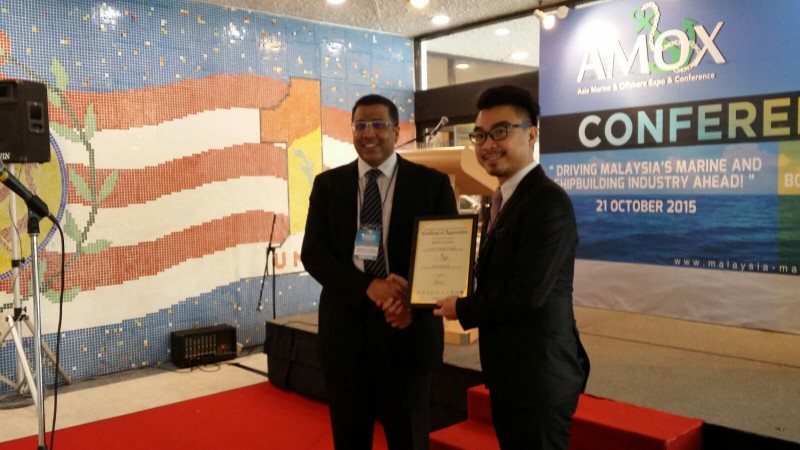Kuala Lumpur - Malaysia is gearing up to position themselves as an alternative choice for maritime dispute resolution in Asia. On 27th February 2012, the Chief Justice of Malaysia launched the Fast Track Arbitration Rules (2nd ed) 2012. The CJ was invited by the Kuala Lumpur Regional Centre for Arbitration to launch the Fast Track Rules as part of the Centre’s initiative to promote Malaysia as a venue for dispute resolution. The Judiciary has been playing a supportive role on arbitration initiatives in Malaysia, assuring users that they take a non interventive role when it comes to arbitration disputes ( unless of course there is evidence of breach of natural justice or public policy).
Riding on the wave of the Admiralty Court and the recent amendments to the Arbitration Act 2005, which now allow for the arrest of ships as security for arbitration claims in Malaysia, the revised Fast Track Rules is an additional boon to the maritime industry. In the second revision of the Rules, the Centre formed a working committee comprising maritime experts to study the needs of the maritime sector and incorporate them into the revisions. An attractive feature of the new Rules is that arbitration cases (with a substantive oral hearing) must be completed within a maximum of 160 days. Documents only hearing must be finished in 4 months. The Rules also caps the Tribunals fees and recoverable costs to a fixed scale. There is a default provision for the appointment of a sole arbitrator. This will save weeks or sometimes months just agreeing to constitute the Tribunal. Of course, the Director of KLRCA can decide on the constitution of the Tribunal, if parties cannot come to an agreement. Although, the Centre has an administrative function it does not interfere with the arbitration proceedings.
Under the Fast Track Rules, claims which are less/unlikely to exceed RM150, 000 (in a domestic arbitration) and USD 75,000 (in an international arbitration) shall immediately proceed as a documents-only arbitration unless a substantive oral hearing is deemed necessary by the arbitrator upon consultation with the parties. Documents-only hearings can be decided by a panel of two arbitrators and as a general rule do not require the physical attendance of parties. The time frames for submission of statements, hearings and the making of awards differ. Obviously, arbitration under the Fast Track Rules is more cost effective. Furthermore, the rules have been drafted so as to make the assessment of costs more predictable. The Fast Track Rules comprises a schedule of Arbitrator’s Fees which arbitrators must have regard for albeit are not bound by while fixing fees. Also, the costs of arbitrations under the Fast Track Rules are capped. For documents-only hearings, costs must not exceed 30% of the total amount of the claim and for an arbitration with substantive oral hearing, costs must not exceed 50% of the total amount claimed. In view of expediency, the Fast Track Rules restricts the use of expert evidence or supplementary expert evidence. To adduce expert evidence, the party wishing to do so must first request for permission or leave from the Arbitral Tribunal within 14 days after the Statement of Reply or service/exchange of expert reports have been delivered. The majority of disputes arise out of construction, commodities, insurance, maritime, energy and commercial disputes. The Arbitration Fee is divided into two categories – the Administrative Charges and the Tribunal’s Fee. The Administrative Charges is 7.50% of the Tribunal’s fees and covers KLRCA’s cost of administering the arbitration. The Tribunal’s Fee are divided into different scales for International and Domestic Arbitrations but very reasonable. There are no restrictions imposed and parties are free to appoint arbitrators of their choice. However, in the event parties cannot come to an agreement, the Director of KLRCA will then refer to KLRCA’s panel of arbitrators to make a suitable appointment. KLRCA has a panel of over 700 domestic and international arbitrators.
The KLRCA has vast experience in administering arbitrations in specialized industries. However, unlike other Centres, the KLRCA does not think it is necessary to launch a specialized division to cater to different specialized industries. This is because the Rules were already drafted in consultation with various specialized industries for example, in this case, the maritime and trade sector. In addition, the KLRCA panel consists of a distinguished panel of industry experts, ranging from construction, energy, maritime and commercial sector. The KLRCA welcomes interested qualified individuals with suitable maritime and energy background to be a panel arbitrator, to bolster an already impressive list!
It is recommended that parties consider adopting the new Fast Track Rules, especially for maritime, trade and energy disputes.
